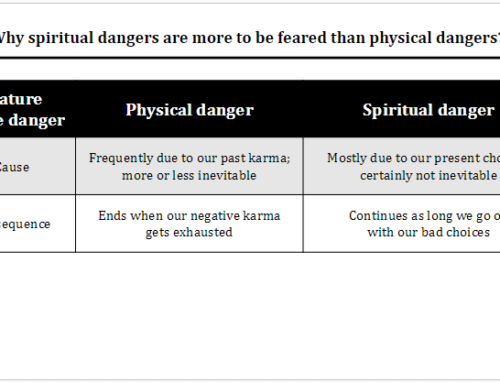In the Bhagavad-gita (09.31), Krishna asks Arjuna to declare boldly that devotees will never perish. Erudite Gita commentators explain why Krishna asks Arjuna to make this declaration instead of making it himself.
Some people think that Krishna sometimes speaks untruths. For example, as a child, he would tell his mother that he hadn’t stolen butter, when in fact he had stolen it. Those with such doubts about Krishna’s truthfulness worry whether he will keep his word to always protect his devotees.
To set their fears to rest, Krishna asks Arjuna to make that declaration. The scriptures repeatedly illustrate how Krishna, out of his love for his devotees, ensures that their words turn out to be true. For example, in the Mahabharata war, Bhishma took the vow eitherto kill Arjuna or to compel Krishna to raise weapons for saving Arjuna. To save the life of Arjuna and the word of Bhishma, Krishna raised a chariot wheel to attack Bhishma, thereby breaking his own word that he would not raise weapons during the war.
How can Krishna, who is the Absolute Truth, not be absolutely truthful?
Actually, Krishna is absolutely truthful. But his truthfulness is based on a platform deeper than the ordinary – the platform of his undying, unfailing, unflinching love for all of us. Those blind to that love quibble about Krishna’s untruthfulness while participating in and perpetuating an existence founded on the falsity of the bodily misconception and the resulting illusory interactions.
To help us see beyond this illusion to the supreme reality of his love, Krishna sometimes speaks apparent untruths that actually expressthe truth of that absolute love. When our eyes open to that love, we understand that whatever Krishnaspeaks is the absolute truth – even when it doesn’t seem to be.
Bhagavad Gita Chapter 09 Text 31
“He quickly becomes righteous and attains lasting peace. O son of Kunti, declare it boldly that My devotee never perishes.”


Leave A Comment